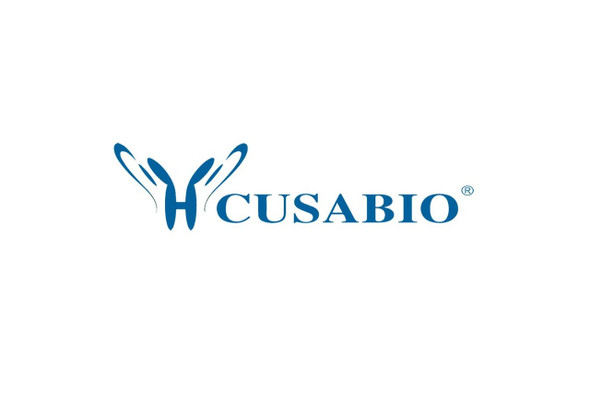Cusabio Human Recombinants
Recombinant Human Transcription factor 7-like 2 (TCF7L2), partial | CSB-EP889079HU
- SKU:
- CSB-EP889079HU
- Availability:
- 13 - 23 Working Days
Description
Recombinant Human Transcription factor 7-like 2 (TCF7L2), partial | CSB-EP889079HU | Cusabio
Alternative Name(s): HMG box transcription factor 4 T-cell-specific transcription factor 4 Short name: T-cell factor 4 Short name: TCF-4 Short name: hTCF-4
Gene Names: TCF7L2
Research Areas: Epigenetics and Nuclear Signaling
Organism: Homo sapiens (Human)
AA Sequence: MPQLNGGGGDDLGANDELISFKDEGEQEEKSSENSSAERDLADVKSSLVNESETNQNSSSDSEAERRPPPRSESFRDKSRESLEEAAKRQDGGLFKGPPYPGYPFIMIPDLTSPYLPNGSLSPTARTLHFQSGSTHYSAYKTIEHQIAVQYLQMKWPLLDVQAGSLQSRQALKDARSPSPAHIVSNKVPVVQHPHHVHPLTPLITYSNEHFTPGNPPPHLPADVDPKTGIPRPPHPPDISPYYPLSPGTVGQIPHPLGWLVPQQGQPVYPITTGGFRHPYPTALTVNASMSRFPPHMVPPHHTLHTTGIPHPAIVTPTVKQESSQSDVGSLHSSKHQDSKKEEEKKKPHIKKPLNAFMLYMKEMRAKVVAECTLKESAAINQILGRRWHALSREEQAKYYELARKERQLHMQLYPGWSARDNYGKKKKRKRDKQPGETNEHSECFLNPCLSLPPIT
Source: E.coli
Tag Info: N-terminal 6xHis-tagged
Expression Region: 1-456aa
Sequence Info: Partial
MW: 54.9 kDa
Purity: Greater than 90% as determined by SDS-PAGE.
Relevance: Participates in the Wnt signaling pathway and modulates MYC expression by binding to its promoter in a sequence-specific manner. Acts as repressor in the absence of CTNNB1, and as activator in its presence. Activates transcription from promoters with several copies of the Tcf motif 5'-CCTTTGATC-3' in the presence of CTNNB1. TLE1, TLE2, TLE3 and TLE4 repress transactivation mediated by TCF7L2/TCF4 and CTNNB1. Expression of dominant-negative mutants results in cell-cycle arrest in G1. Necessary for the maintenance of the epithelial stem-cell compartment of the small intestine.
Reference: "Identification of c-MYC as a target of the APC pathway."He T.-C., Sparks A.B., Rago C., Hermeking H., Zawel L., da Costa L.T., Morin P.J., Vogelstein B., Kinzler K.W.Science 281:1509-1512(1998)
Storage: The shelf life is related to many factors, storage state, buffer ingredients, storage temperature and the stability of the protein itself. Generally, the shelf life of liquid form is 6 months at -20?/-80?. The shelf life of lyophilized form is 12 months at -20?/-80?.
Notes: Repeated freezing and thawing is not recommended. Store working aliquots at 4? for up to one week.
Function: Participates in the Wnt signaling pathway and modulates MYC expression by binding to its promoter in a sequence-specific manner. Acts as repressor in the absence of CTNNB1, and as activator in its presence. Activates transcription from promoters with several copies of the Tcf motif 5'-CCTTTGATC-3' in the presence of CTNNB1. TLE1, TLE2, TLE3 and TLE4 repress transactivation mediated by TCF7L2/TCF4 and CTNNB1. Expression of dominant-negative mutants results in cell-cycle arrest in G1. Necessary for the maintenance of the epithelial stem-cell compartment of the small intestine.
Involvement in disease: Diabetes mellitus, non-insulin-dependent (NIDDM)
Subcellular Location: Nucleus, PML body
Protein Families: TCF/LEF family
Tissue Specificity: Detected in epithelium from small intestine, with the highest expression at the top of the crypts and a gradient of expression from crypt to villus. Detected in colon epithelium and colon cancer, and in epithelium from mammary gland and carcinomas derived therefrom.
Paythway: Hipposignalingpathway
Form: Liquid or Lyophilized powder
Buffer: If the delivery form is liquid, the default storage buffer is Tris/PBS-based buffer, 5%-50% glycerol. If the delivery form is lyophilized powder, the buffer before lyophilization is Tris/PBS-based buffer, 6% Trehalose, pH 8.0.
Reconstitution: We recommend that this vial be briefly centrifuged prior to opening to bring the contents to the bottom. Please reconstitute protein in deionized sterile water to a concentration of 0.1-1.0 mg/mL.We recommend to add 5-50% of glycerol (final concentration) and aliquot for long-term storage at -20?/-80?. Our default final concentration of glycerol is 50%. Customers could use it as reference.
Uniprot ID: Q9NQB0
HGNC Database Link: HGNC
UniGene Database Link: UniGene
KEGG Database Link: KEGG
STRING Database Link: STRING
OMIM Database Link: OMIM









